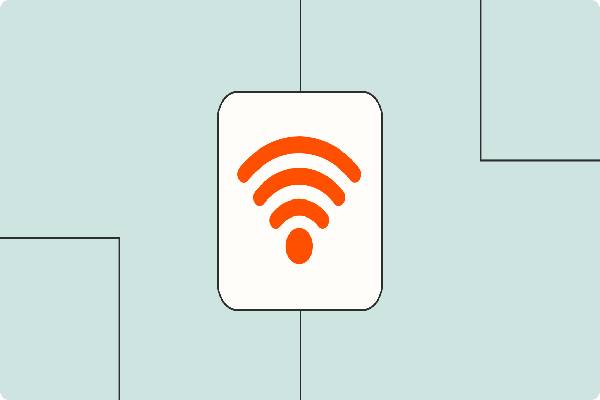Leveraging Electronic Health Record Systems to Enhance Behavioral Health Services

Introduction
The integration of Electronic Health Record (EHR) systems
into the healthcare panorama has revolutionized the manner affected person
facts is managed and shared. While EHRs are widely used in traditional
healthcare settings, they may be additionally proving to be beneficial gear for
Behavioral Health Organizations (BHOs). In this article, we will discover how
EHR systems can help BHOs, improve patient care, streamline operations, and
beautify normal efficiency.
1. Comprehensive Patient Data Management
Behavioral fitness offerings often involve complex affected
person histories, along with intellectual health, substance abuse, and
co-occurring problems. EHR structures provide a unified platform for coping
with all components of a affected person's medical records, permitting BHOs to
keep accurate and updated records. This comprehensive view of the patient's
medical history is crucial for presenting effective care.
2. Coordination of Care
EHR systems facilitate seamless communique and statistics
sharing among various healthcare carriers involved in a patient's care, such as
number one care physicians, therapists, and counselors. This coordination is
specifically important for people with co-occurring issues who may additionally
require included treatment plans.
3. Treatment Planning and Documentation
EHR structures allow BHOs to create special remedy plans and
document development efficaciously. Clinicians can document therapy periods,
song remedy usage, and monitor modifications in a affected person's circumstance.
Accurate documentation is essential for proof-based totally treatment and
compliance with felony and regulatory requirements.
4. Medication Management
Medication control is a critical thing of behavioral
healthcare. EHRs permit BHOs to electronically prescribe and manipulate
medications, lowering the risk of errors and enhancing medicine adherence.
Clinicians can get entry to actual-time facts about a affected person's
medicinal drug records, permitting safe and knowledgeable prescribing.
5. Billing and Claims Management
EHR systems streamline the billing manner for BHOs. They can
generate and put up claims electronically, reducing administrative overhead and
the chance of errors. This performance ensures that BHOs are appropriately
compensated for their services and may allocate resources extra efficiently.
6. Improved Access to Patient Information
EHRs provide relaxed and far flung get right of entry to to
patient data, permitting healthcare carriers to get entry to important
information from everywhere with an internet connection. This flexibility is in
particular precious for disaster management and emergency conditions.
7. Data Analytics and Reporting
EHR structures provide strong facts analytics and reporting
abilities. BHOs can leverage this facts to assess treatment outcomes, identify
traits, and make facts-pushed decisions. Analytics can also assist BHOs degree
the effectiveness of particular interventions and refine remedy plans.
Eight. Regulatory Compliance
The healthcare industry is subject to numerous guidelines,
along with the Health Insurance Portability and Accountability Act (HIPAA) and
the 21st Century Cures Act. EHR systems are designed to assist BHOs in
maintaining compliance with those regulations, making sure the safety and
privateness of patient statistics.
Nine. Telehealth Integration
The COVID-19 pandemic expanded the adoption of telehealth
offerings. EHR systems can combine with telehealth systems, permitting BHOs to
offer far off care to patients, increasing their reach and improving get entry
to to mental fitness services.
Challenges and Considerations
While EHR systems provide numerous blessings to BHOs, there
are demanding situations to bear in mind:
Cost: Implementing and maintaining EHR structures may be
high priced. BHOs should carefully examine their budget and do not forget the
return on investment in phrases of progressed patient care and operational
efficiency.
Training and User Adoption: Staff schooling is crucial to
make sure that EHR systems are used correctly. User resistance may be a
mission, but offering good enough education and assist can assist triumph over
this difficulty.
Data Security: Protecting affected person information is a
pinnacle priority. BHOs should spend money on sturdy security features,
inclusive of encryption, user authentication, and ordinary safety audits, to
safeguard touchy data.
Interoperability: Ensuring that EHR structures can speak with
different healthcare companies' systems is important for coordinated care. BHOs
should pick EHR structures that prioritize interoperability.
Conclusion
The integration of Electronic Health Record (EHR) structures
into Behavioral Health Organizations (BHOs) has the ability to revolutionize
the shipping of mental health and substance abuse services. These structures
offer complete affected person facts management, decorate coordination of care,
streamline treatment planning and documentation, and improve remedy control.
Moreover, EHRs facilitate billing and claims management, provide access to
patient records from anywhere, offer data analytics and reporting competencies,
and support regulatory compliance.
While there are challenges to don't forget, such as the preliminary cost, workforce schooling, statistics security, and interoperability, the advantages of EHR systems in behavioral healthcare a ways outweigh the challenges. As the healthcare industry keeps to embody virtual transformation, BHOs that leverage EHR systems may be higher equipped to provide exceptional care, beautify patient effects, and adapt to the evolving panorama of healthcare services.

.jpg)